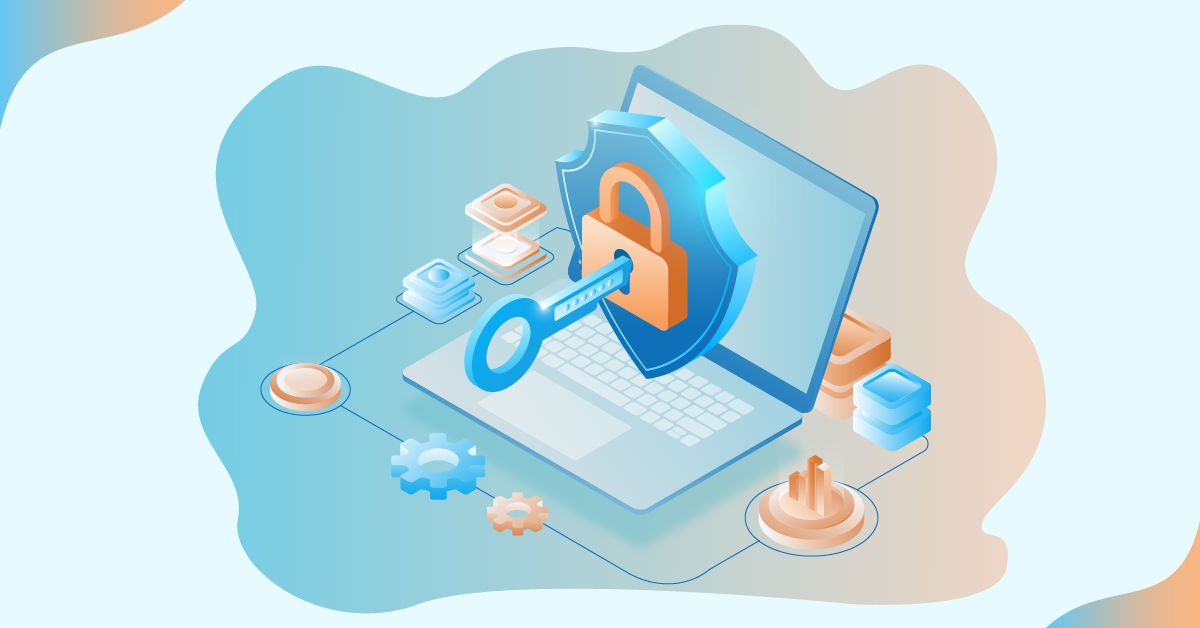Posted on: July 24, 2021
Advantages of data security to enhance the integrity of the remote operation
Get started
Data security advantages while operating in a digital space are analogously important, like productivity or quality management, and this is true irrespective of business type, industry, or even workplace framework. In general, the term “data security” refers to the protective measures to safeguard data from any kind of unapproved access and data leakage from the path or any endpoint. Whether working on-site or it’s about remote operation, data is an important asset to any organization. Therefore, deploying the best cyber defense is essential to protect it from any threat.
Enhance data security for remote work
Request a DemoWith the sudden upsurge in remote operations due to the spread of the Novel coronavirus in March 2020, organizations are still observing the uncertainties of data security. And this is more challenging for organizations with zero or little remote operation experience. With other concerns, potential data security is one of the major concerns organizations are currently confronting.
Numerous reasons can be present behind the cause of data outpouring in an untrusted environment. It might be due to system failure, computer virus corruption, or any leakage from the remote users’ end. This is why engaging the best robust security solution that safeguards your data privacy during remote operation is as essential as productivity management or team collaboration.
Advantages of data security for remote workforce: The utmost concern under remote operation
The sudden outspread of coronavirus changed every aspect of human life and the business world is not exceptional in it. More or less every organization that has the space to operate their business remotely arranges off-site operations for their workforce. And this brings new light to the need for cybersecurity.
Hackers know that many employers are going remote which widens their chances to conduct any cybercrimes than never before. According to an article published in The Hill, research from Barracuda Networks revel a 667% spike in cybercrimes due to this sudden upsurge of remote operation. So cyber-security is more important for any company working remotely during the height of this pandemic situation.
Even when there isn’t a global threat, data is an important asset to any organization. And thereby, it is essential to safeguard it from any kind of menace. When employees are operating in an office setting; any data is typically being saved and protected by maintaining every compliance and security patch of data privacy. This happens mainly because every employee stays connected with the same network.
But during remote operation, the same confidential data are accessed from open/personal networks. This brings the requirement of the highest level of data security measures. And this creates new vulnerabilities in organizations’ entire IT systems from both external and internal threats.
Yes, one can say, connecting to the VPN provided by the employer helps to keep private data secure. However, besides VPN, there should be other protocols or effective advantages of data security measures that can eliminate every aspect of data loss.
Data leakage or data breaches can harm a business in several ways. For example, it can downstream brand reputation, a competitor can aware of your present and future business strategies, penalty and lawsuit, etc. This is the tip of the iceberg when talking about the consequences of data loss.
Whatever is the reason and its negative effect, every path leads to an immense financial loss for a business. What’s more sensitive here is if precautions are not taken timely, it could be dangerous. And this can be true for a growing or prospering business as well; even it might also not survive in the future. So it is essential to ensure that there should be no stone unturned; when data safety concerns are connected to remote workplace data security.
Apart from cyber security, how a data-secure path can help to enhance operational efficiency
The advantages of data security for the remote workforce are not only about preventing your company’s database from cybercrime. In terms of endpoint users or simply remote employees, ensuring data safety is very much correlated with close monitoring.
All that is required to achieve such dual benefits for your remote operation; choose the right remote workforce management software. To understand it, take an example of a feature like a screen capture. Here supervisor can capture screenshots at regular intervals of every user’s working screen.
This enables a supervisor to know whether any malpractice is exercised online during the working schedule. It not only enlight the supervisor about access to any wrong website that can cause data leakage of the organization.
Additionally, this helps to get an insight into employee engagement towards work. Also, cast an eye over every employee devoted active time to a productive task or not. Again blocking a social media site also eliminates any access by a user during working hours. So not only about data safeguarding, a certain feature that keeps your business data intact; it also enhances the certainties that make a remote employee more productive.
3 Major persuasive features that ensures a complete data safety solution under a remote working platform
When you are looking for a complete data security solution for your remote workforce, making “out of office operation” bankable and safe is a bit challenging. Basically, during remote operation, an organization should focus on protecting three common elements namely, people (or customer), technology, and process. Here people mean detailed information of customers or buyers and also of employees.
And technology is basically about business strategy that covers lead generation to customer retention. Lastly, the process is a combination of both or more specifically database of the entire business operation. So what is a better option; a security platform that can cover all three elements from any cyber warning which inwardly protects intellectual capital and brand value.
1. Website Whitelisting
This is basically a customizing or sorting type process. A process that allows access to only some particular websites; is whitelisted within the browser. Or in other words, it allows requests to only those websites which you deem trustworthy. So this feature ceases a user to open any websites that are both unnecessary and can be a threat to data security for your business.
So you can easily customize the website list according to your process requirement. Under data security, this whitelisting feature works as a power booster, especially in the remote workspace. Along with blocking advertising websites, this minimizes any kind of phishing attempts and malware spreading.
Also, website whitelisting stops hackers to slowly redirect users to mal-intended websites, which can severely damage the database. Also, it’s better to have a network health check tool for every remote user to check the authenticity and speed of the network beforehand.
2. Block Key Combination and Live Tracking
Another effective data safety strategy is blocking or disenabling certain key combinations that can cause data outspread from a user-end. For example, blocking the print screen (ctrl C+ ctrl P) option, once a user logged in and starts his work can ensure enriched advantages of data security validation.
The primary objective of block-key combination is, to make a user’s system in a lockdown or more precisely in a customized mode during the entire working hour. Along with such a restricting feature, live tracking allows one to snoop into an executive’s system.
And the best part; this smart feature enables the supervisor to get a real-time picture or live working status of any user. So live tracking helps to collect proof against any malpractice conducted by a user
3. Screenshot and Cloud Storage
Another way of live monitoring is capturing system-screen or user-interference displays at regular intervals. This gives an insight into each employee’s commitment towards work; also it provides real-time notification in case any user browses some NSFW or inappropriate content that might hamper data security.
And using a cloud-based data storage pool to share those screenshots will be a great alternative. Not only about screenshots; under remote operation, every data can also be saved using a cloud storage platform. This eliminates the chances of data breaches that might occur due to local-drive data storage.
Simultaneously, every member can access files/ reports easily under cloud storage, which makes remote operation efficient, easy, and secure.
These are a few technical aspects that can upsurge the data security of your remote workforce both effectively and rapidly. Additionally, proper training for the remote workforce is required.
Each remote employee should be aware and trained about the consequences of the data breaches. Also about any practice (both intentional and unintentional), that can hurt your business data. Once everyone knows the compliances and regulations of data privacy; data security concerns will not be a challenging task for your remote operation.
Engage the best remote workforce management solution for a better data security assurance
According to a remote workforce data of 2019 published by FlexJobs shows remote operation increase by 44% over the last five years. So whether a pandemic situation or not, remote working is on an upsurge scale. And yes, remote work always demands the best solution when it comes to data safety.
That’s why going for an apt data security solution that can minimize any cyber threat is always preferred. Leapmax as a remote working solution covers every aspect of data safety and security for the remote workforce. From website whitelisting to live barge-in; any chances of data leakage are tried to minimize with a nexus of all these available features.








